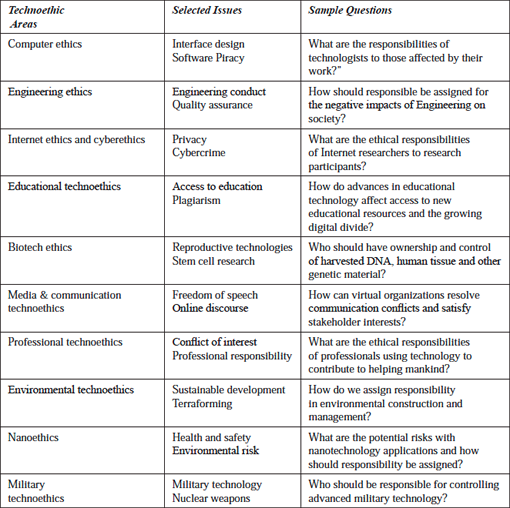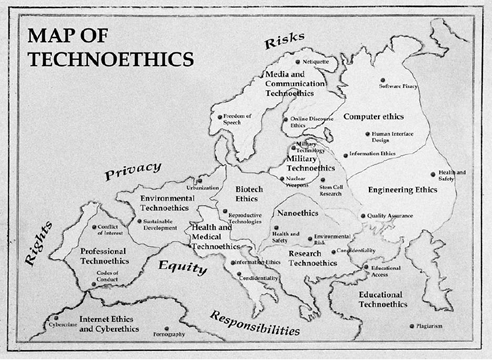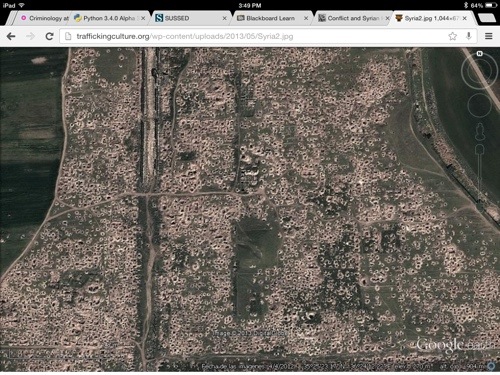Archive for the ‘Ethics’ tag
Archaeology, crime, and the flow of information. no comments
Whether it be from property developers, civil war and conflict, treasure hunters and local enthusiasts, or just “bad archaeology”, archaeologists and heritage professionals have long struggled with the question of how to ensure the protection of sites, monuments and antiquities for future generations. Archaeological method and “preservation by record” were historically born out of situations where archaeology can not be conserved and within a desire to uphold one of the main principles of stewardship: to create a lasting archive. As archaeology is (very generally speaking) a destructive process that can not be repeated, an archive of information regarding the context and provenance of archaeological sites and finds is created to allow future generations to ask questions about past peoples.
Recent years have presented numerous ethical challenges to archaeologists and and other stewards of the past, particularly where crime and illicit antiquities are concerned. Social media and web technologies in general have provided, in some cases, real-time windows into the rate of the destruction of heritage sites within areas of war and conflict. Evidence from platforms such as Google Earth, Twitter, and YouTube have all been used by world heritage stewards to plead for the protection of both archaeological sites and “moveable heritage”. Ever-evolving networks of stakeholders in the illegal antiquity trade have also been identified and linked to looted sites in areas where some have hypothesized that the sale of antiquities is actually funding an on-going arms trade in regions consumed by civil war.
Although a case could be made for investigating the nature of archaeology and crime from the angle of many different disciplines (philosophy, ethics, economics, law, psychology, to name a few), criminology and journalism were specifically chosen to offer insight into the role of the Web as a facilitator in the flow of information. Both disciplines are concerned with information flow and resource discovery – for example, in journalism the flow of information between (verifiable) sources of information through to dissemination to the public, and in cybercrime the important information exchange that drives networks of crime (both physical and virtual).
Focusing on the nature of information exchange, what would criminology and journalism contribute to the following topics?
- Social media and the dissemination of heritage destruction. What are the ethical issues surrounding the use of social media sources in documenting heritage destruction? Can/should social media sources (sometimes created for other purposes) be used as documentation to further research or conservation aims within archaeology?
- The international business of selling illicit antiquities – from looters to dealers – what role does the Web play in facilitating these networks of crime? What methods for investigating cybercrime could be applied to the illicit antiquities trade to better understand the issues surrounding provenance?
- Does the “open agenda” and the open data movement specifically (e.g. online gazetteers of archaeological sites, open grey literature reports with site locations, etc.), create a virtual treasure map and subsequently increase the likelihood of looting at archaeological sites?
Some aspects of each discipline which I believe to be relevant to the study of each (as well as the chosen topic):
Criminology and Cybercrime
- What is crime? (“The problem of where.“/”The problem of who.“)
- Policy and law
- Positivism and the origins of criminal activity.
- Digital Forensics
Journalism
- What is Journalism?
- Who are Journalists?
- Ethics and Digital Media Ethics
- Anonymity, Privacy and Source
- Bias and Conflicts of Interest
Some Potential Sources
Criminology:
Burke, R.H., 2005. An Introduction to Criminological Theory: Second Edition. Willan Publishing.
Walklate, S., 2007. Criminology: The Basics. 1st ed, The Basics. New York: Taylor & Francis.
Yar, M., 2013. Cybercrime and Society. 2nd ed., London: SAGE.
Journalism:
Ess, C., 2009. Digital Media Ethics. Cambridge: Polity Press.
Frost, C., 2011. Journalism Ethics and Regulation. 3rd ed., Longman.
Harcup, T., 2009. Journalism: Principles and Practice. 2nd ed., SAGE.
Computer Hacking and the Moral Standpoint: For Saints or Sinners? no comments
Initial thoughts on philosophy constitute the subject as a means to question, analyse and assemble thoughts and conceptions of the universe (Nagel, 1987). Furthermore, it has been mentioned that these analyses technically cannot be answered within the current available technology of that particular time. And so, early constructions of the ‘heavens’ and earth, from various religious eras, seemed contradictory to the later findings from scientific studies. Although, from this, further questions can be built upon this to create new philosophies of the universe. This insinuates that the foundations of philosophy stem from an innate human motivation to learn about the world around us and question our very purpose within it. Whether in hindsight that an act of communications hacking is indeed relevant or even significant to the purposes of human beings on planet earth and within the universe.
Not only does philosophy stem from an ideology of ‘nothing is certain’, it also strives to suggest that there are implications and ramifications for such actions associated with what is humanly and technologically possible. Brian Harvey (1985) analyses the ethical consequences of such hacking actions and that the human associated with the action will indeed, over time, become desensitised to the ethical implications as a consequence of their actions. This seems as though it is dependant upon whether they are hacking for the greater good or whether it a simple act of breaking down security systems in order to alter the intended message to its audience.
Furthermore, Harvey (1985) notes that the ethical understanding of a human being is something that is learned, something that is driven from our interaction with the environment and with society, that ethical understanding and awareness are social phenomena that are altered according to variables such as gender, race, religious belief, culture and status. In reference to communications hacking, the ethical implications are based on the judgement from the end-user or the audience of the message and not of the hackers themselves. Although, this begs the question of whether empathy is an emotion on the flipside to perceived ethical discrepancies.
In a news article, the Vatican stated that hackers are subjects associated with a greater good, that they are driving us away from the restrictions and securities of western society and that freedom of speech and the right to know such information is a part of society (Discover Magazine, 2011). In reference to one of my previous posts, this article continues down the route that hacktism is the ideology associated with the freedom of information.
It is clear to see that there is a crossover point between political action and philosophical theory. In my next entry I shall be researching how philosophical theories are represented as political ideologies and how this may affect societies perceptions on communications hacking. Does political reasoning give the hacker the excuse to perform such actions?
Introductions: Technoethics no comments
Moor on Ethics & Technology
Moor (2005) believed that with an increase in the social impact of technological advances, the number of ethical challenges also increase. He suggested that this is a result of the ever-increasing novel uses of technological advances and a lack of ethical inquiry into these activities. For example, the Web has fundamentally altered the social contexts within which we live, work and play. It has raised several questions including some about the legitimacy of human relationships maintained using its platform, its facilitation of illegal activity on a large scale and the privacy of its users.
However, though these are very present and pressing societal issues, they are also vast areas for investigation, and there is relatively sparse research coverage. Also, an added dimension to this challenge is that technological advances seem to continuously change the standard ethical questions. Thereby researchers are forced to simultaneously attempt to explore the ethical implications of these technologies as they were, are now and could be in the future.
Technoethics: Tackling New Types of Ethical Questions
Unsurprisingly, many of the current debates surrounding technological advancement are addressed by technoethics (TE). They are some of the most challenging issues that scientists, innovators and technologists will face. These challenges usually characterise the roles these individuals play when plotting an ambitious route for the future. They inadvertently raise important questions about rights, privacy, responsibility and risk that must be adequately answered.

However, due to the variety of questions resulting in as much ethical inquiries that are based in different fields, there is a tendency for this knowledge to be somewhat disconnected. TE pulls this knowledge together around the central idea of technology. Moreover, unlike traditional applied ethics where focus is placed on an ethical concern for living things, TE is ‘biotechno-centric’. As the Web is to Web science, technology, as well as living things, are central in TE.
The Technoethics Way
Tracing its origins back to the late 1970s, TE emerged as an interdisciplinary field tasked with the job of answering the difficult questions posed earlier. Coined by Mario Bunge (1977), TE does not only assign technical responsibility to technologists but also gives them social and moral responsibility for their technological innovations and applications. It is believed that technologists are responsible for ensuring that their technologies are optimally efficient, not harmful and that its benefits are lasting.
This field distinguishes itself from other branches of applied ethics by elevating technology to the level of living things. However, it also builds on knowledge from wider ethical inquiry as well. TE has many sub-areas, for example, Internet, computer, biotech, cyber and nano ethics.

Calling All Web Scientists
Since the Web’s creation years ago, an understanding of this ever-changing phenomenon and its impact has been developing at a rapid pace in many disciplines. Yet there is a great deal more to learn, especially when the Web is positioned as the subject of focus. Considering Bunge’s views on technoethics, I believe that this obligation rests with Web scientists who are technically, morally and socially responsible for Web innovations and applications.

As a budding Web scientist, thinking about how technoethics applies to Web science, I am absolutely fascinated by all the very interesting questions that could be asked and that I could work towards answering. Ultimately, for us Web scientists, the aims of technoethics could be achieved by gaining insight into the relationship between people, the society and the Web, and how these entities impact each other.
Notes
This & Last Week’s Plan
Identifying the simplest books to read that will give an easy to understand introduction to the disciplines I picked.Making notes on books read.Prepare a blog post that gives an overview of what I want to work on.Publish a blog post that introduces technoethics.- Publish a blog post that introduces risk management.
Outline a reading plan for moving forward.
Introductory Readings
Ethics: A Very Short Introduction– Simon BlackburnHandbook fo Research on Technoethics– Rocci Luppicini & Rebecca AdellRisk: A Very Short Introduction– Baruch FischhoffFundamentals of Risk Management Understanding, Evaluating and Implementing Effective Risk Management– Paul Hopkin
Technoethics & Risk Management: Embracing The Web In The Workplace no comments

For some time I have been very interested in how people use the Web at work and the discussions surrounding this practice at different levels in the organisation. Over the years many have talked, written and passionately lobbied about the many issues that have emerged. I also joined this discussion and tried to present a balanced argument for the Web in the workplace, even if only for personal use. Yet, there still seems to be some confusion about how to best manage Web usage in organisations.
Taming the Web in the Caribbean Workplace
In the Caribbean, there is a predominantly negative perception of Web usage at work, especially among the management of large established organisations. There is a very real fear that Web usage in the workplace makes the organisation vulnerable to taking legal liability for related unlawful activities, security breaches, bandwidth drain and productivity losses. As a result, many organisations in the region have adopted an approach where they rather be safe than sorry. Unfortunately, based on my experience, measures used to manage risk are then usually excessive and outweigh the amount of risk posed.
Organisations have attempted to manage employee Web usage utilising several methods. Sometimes blocking and or requiring written permission to access certain sites and services, using monitoring software to enforce strict policies and providing training to employees on ‘proper’ Web usage in the workplace. However, barriers to unrestricted access are quickly being removed with the introduction of affordable 4G mobile Internet access and very strong adoption of smart phones (e.g., iPhone and Blackberry) by employees in the region. Unsurprisingly, this has prompted some organisations to respond by taking an even tougher approach to managing Web usage in the workplace on any device.
My Lens: Finding Responsible Ways to Embrace the Web in the Workplace
The above scenario, though somewhat extreme, does not only exist in the Caribbean region but is also likely to be present in organisations all over the world in varying forms. Given this, I have chosen to explore the disciplines of technoethics and risk management and their inherent approaches to the current issue. There is also hope to discover new ways organisations can go about creating effective strategies to encourage employees to use the Web at work in more responsible ways that does not put the organisation, themselves and the Web at risk.
Notes
This & Last Week’s Plan
Identify the simplest books to read that will give an easy to understand introduction to the disciplines you picked.- Make notes on books read.
Even if it is the last thing you do, prepare a blog post that gives an overview of what you want to work on by Monday.- Publish a blog post that introduces technoethics.
- Publish a blog post that introduces risk management.
- Outline a reading plan for moving forward.
Current Readings
- Ethics: A Very Short Introduction – Simon Blackburn
- Handbook of Research on Technoethics – Rocci Luppicini & Rebecca Adell
- Risk: A Very Short Introduction – Baruch Fischhoff
- Fundamentals of Risk Management Understanding, Evaluating and Implementing Effective Risk Management – Paul Hopkin
